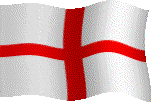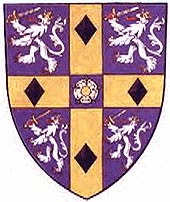Encyclopédie Marikavel-Jean-Claude-EVEN/Encyclopaedia/Enciclopedia/Enzyklopädie/egkuklopaideia

England Bro-Saoz |
Binchester
Vinovia / Vinovium |

Durham *** |
| page ouverte le 18.09.2006 | forum de discussion
* forum du site Marikavel : Academia Celtica |
dernière mise à jour 28/05/2012 10:37:14 |
![]()
|
Définition : Angleterre; comté de Durham; Autrefois la forteresse romaine Vinovia, ou Vinvovium, sur le route de Cataractonium / Catterick à Corstopitum / Corbridge.. |
|
![]()
|
Extraits de la carte Map of Roman Britain, par Ordnance Survey |
![]()
|
Histoire : ***** |
![]()
|
Étymologie : A. Vinovia / Vinovium : * Rivet & Smith, p. 504 : SOURCES - Inscription : RIB 1036, an altar set up by a soldier who was EX C FRIS VINOVIE, expanded by RIB as ex c(uneo) Fris(iorum) Vinovie(nsium); - Ptolemy II, 3, 10: Ouinnoouion (= VINNOVIUM, in U and most MSS), var. Ouinoouion (= VINOVIUM, preferred by Muller) - AI 461 (Iter I): VINOVIA - Ravenna 10713 (= R&C 134) : VINOVIA, var. VINONIA. In the inscription, RIB expands to give an adjectival form of the name; but it is perfectly possible that Vinovie, which occupies a full line, is complete in itself as a Vulgar Latin locative of the place-name. DERIVATION. As between -nn- (Ptolemy) and the other texts with -n- it is impossible to judge. The difference in endings, neuter -ium (British *-ion) in Ptolemy and feminine -ia in the other texts (the inscription, if adjectival, could be based on either), is curious; possibly there was an early and a later form of the name. In any case British suffixes together making up *-ouio- are involved (compare CANOVIUM). Jackson in Britannia, I (1970), 81, thinks the *uin- element obscure, dismissing R&C's proposal of *uen- (as in Welsh gwen ' smile ') on the grounds that the name would need to be *Venovia at the early date of the texts, and this form nowhere appears; moreover, it is hard to see how such a meaning could be used in place-name formation. Pre-Indo-European *vin- 'mountain' can hardly be in question. There is one exact parallel in an inscription which mentions Vinovie[nses] in Germania Inferior, at a place now called Vein; sce Whatmough DAG 933. The name must be regarded as unsolved. IDENTIFICATION. The Roman fort at Binchester, Durham (NZ 2131). Note (1). See MORBIUM for an emendation to the text of ND, which is not acceptable. Note (2). Jackson in Britannia rightly notes that the name Binchester cannot corne directly from the British *Uinouia or *Uinouion, giving detailed reasons in LHEB 89 (note 2) and 260 (note 5) : principally that a British initial U- is taken into Anglo-Saxon as W-, so that if there had been direct derivation one would expect *Winchester. Ekwall EPN thought the first element of Binchester was perhaps Anglo-Saxon binn 'manger', later 'stall', adding that 'The old fort may have been used as a shelter for cattle'. Jackson seems to prefer this explanation, but is prepared to allow that 'At most, influence of Anglo-Saxon binn " manger "on * Win-ceaster might be postulated.' This seems right; when we have a Romano-British Vin-, and an Anglo-Saxon settlement on the same spot called Bin-, it would seem obvious to admit the folk-etymology as an influence in the continuation of the old name - a continuation surely indicated by the -chester. Note (3). A further interesting survival is discussed by O. G. S. Crawford in Antiquity, IX (1935), 287. Arthur's eighth battle was fought, according to Nennius (56), in castello Guinnion. Crawford notes that objection had been made to the indentification of this with Vinovia on phonetic grounds, rightly; but Crawford seems not to have noted that Ptolemy's alternative Vinnovium (British *Uinnouion) brings us very close to the later name set down by Nennius. There is still a problem, however, in that Vinnovium should have given in Old Welsh at this stage a form in -wy, or similar; but it could be that -ion has been maintained as a learned form. Crawford, even without this support, thought that theidentification should not be entitrely rejected, ans he was surely right (Holder III, 354 supported the equation too). ************ B. Binchester : * Eilert Ekwall : Bynceastre c. 1050 HSC, Bincestre 1104-8 SD, Bincestr' 1196 P. First el. perhaps OE binn 'manger', later also 'stall'. The old fort may have been used as a shelter for cattle. |
![]()
| Bibliographie; sources :
* Eilert EKWALL : The Concise Oxford Dictionary of English Place-names. Clarendon Press. Oxford. 1936 - 1980 (4è édition). * Ordnance Survey : Map of Roman Britain. 1956. * A.LF. RIVET & Colin SMITH : The Place-names of Roman Britain. Batsford Ltd. London. 1979-1982. |
![]()
|
Liens électroniques des sites Internet traitant de Binchester / Vinovia : Vinovium : forum de discussion* forum du site Marikavel : Academia Celtica hast buan, ma mignonig go fast, my little friend |
![]()